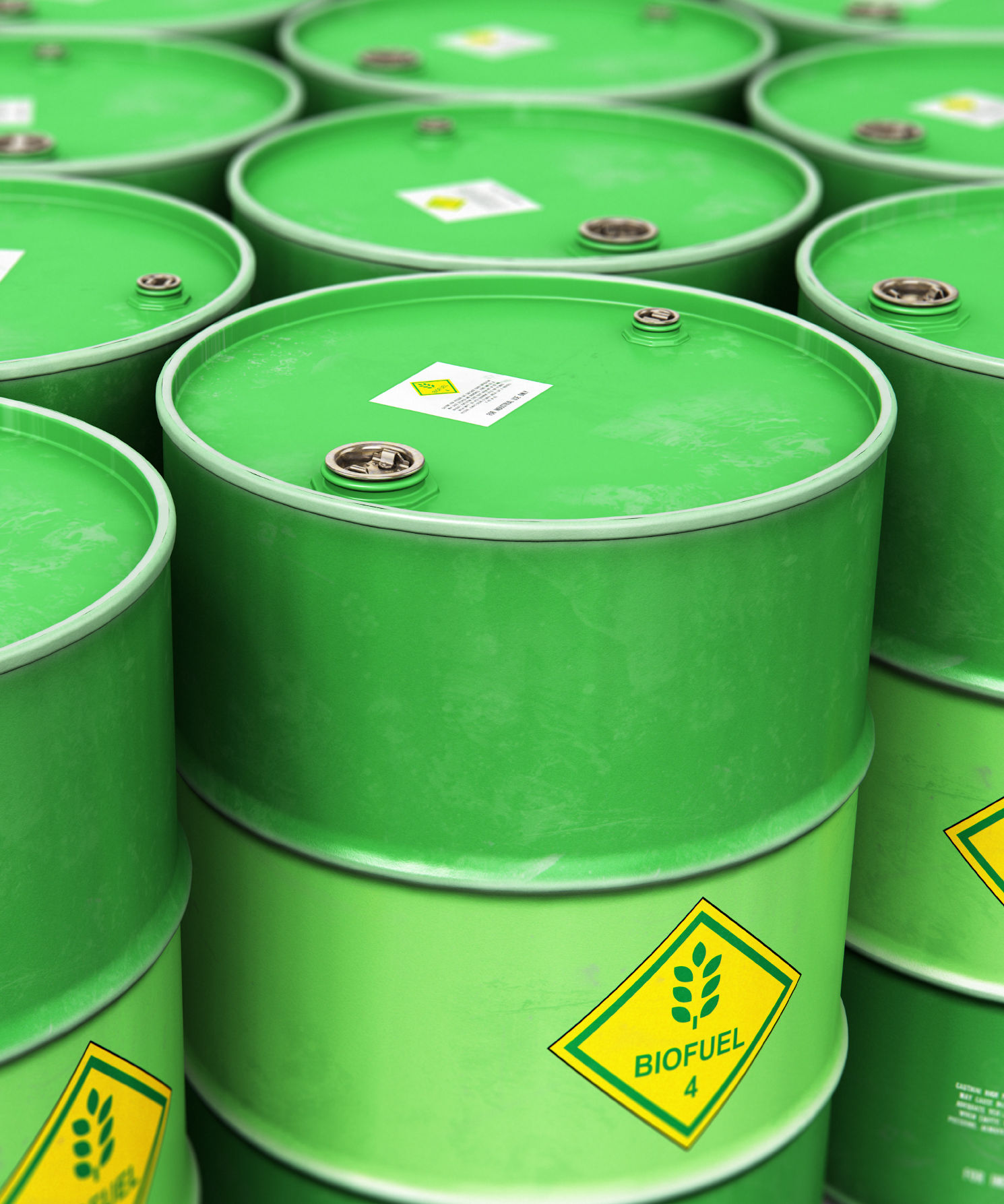Renewable Fuels
The future of energy is lower carbon, and affordable, reliable, cleaner energy is essential to achieving a more prosperous and sustainable world. That’s why renewable fuels are becoming the fuel choice for many industries.
However, its important you do your research and choose the right product for your applications.
With our extensive knowledge
We can help you make the best choice for your organization.
Biodiesel
Is a liquid fuel produced from renewable sources, such as new and used vegetable oils and animal fats, and is a cleaner-burning replacement for petroleum-based diesel fuel. Biodiesel is nontoxic and biodegradable and is produced by combining alcohol with vegetable oil, animal fat, or recycled cooking grease. Like petroleum-derived diesel, biodiesel is used to fuel compression-ignition (diesel) engines. Using biodiesel as a vehicle fuel increases energy security, improves air quality and the environment, and provides safety benefits. It meets both the biomass-based diesel and overall advanced biofuel requirement of the Renewable Fuel Standard. Biodiesel can be blended with petroleum diesel in any percentage, including B100 (pure biodiesel) and, the most common blend, B20 (a blend containing 20% biodiesel and 80% petroleum diesel).
B20 Biodiesel
Is a common biofuel blend which consists of up to 20 percent biodiesel and 80 percent petroleum diesel. B20 presents a good balance of cost, emissions cold-weather performance and equipment compatibility. Moreover, regulated fleets that use biodiesel blends of greater than or equal to 20 percent qualify for credits under the Energy Policy Act of 1992. As a result, B20 fuel has achieved significant popularity among U.S. fuel retailers, distributors and transportation fleet operators.
B99 Biodiesel
Is a high-level biofuel blend consisting of up to 99.9 percent biodiesel and 0.1 percent petroleum diesel. B99 and other high-level blends (B100) are less common than B20 and other low-level blends. B99 can be used in some engines built since 1994 with biodiesel-compatible material for certain parts, such as hoses and gaskets. It has a solvent effect, and it can clean a vehicle’s fuel system and release deposits accumulated from petroleum diesel use. The release of these deposits may initially clog filters and require frequent filter replacement in the first few tanks of high-level blends.
Renewable diesel
Also known as petroleum diesel’s low carbon twin, is made from the same renewable resources as biodiesel but uses a different production process. The result is a renewable fuel that is chemically identical to petroleum diesel and meets the same ASTM specification. It is one of the newer alternative fuels on the market but has quickly become popular because it effectively reduces emissions, delivers strong performance and has up to 85% less sulfur than ultra-low sulfur diesel (ULSD). As clean air regulations and sustainability goals become more common, this fuel will continue growing in popularity.
Compressed natural gas (CNG)
Is another alternative fuel option, where its advantages include its domestic availability, established distribution network, relatively low cost, and emissions benefits. It’s produced by compressing natural gas to less than 1 percent of its volume at standard atmospheric pressure. It is used in light, medium, and heavy-duty applications, and gets about the same fuel economy as a conventional gasoline vehicle.
Renewable natural gas (RNG)
Is a pipeline-quality gas that is fully interchangeable with conventional natural gas and thus can be used in natural gas vehicles. RNG is essentially biogas (the gaseous product of the decomposition of organic matter) that has been processed to purity standards. Like conventional natural gas, RNG can be used as a transportation fuel in the form of compressed natural gas (CNG) or liquefied natural gas (LNG). RNG qualifies as an advanced biofuel under the Renewable Fuel Standard. In fact, many California dairy farms have started projects to capture methane from waste and process it into renewable natural gas (RNG) rather than allowing it to decompose and release methane into the atmosphere. Renewable natural gas vehicles are estimated to result in up to 95 percent lower emissions than those fueled by gasoline or diesel on a lifecycle basis.
